- Discover the Enchanted Beauty of India with Melissa Findley
-

Celebrated for her dramatic landscapes and ultra-emotional portraits, Queensland-based photographer Melissa Findley has travelled the globe in search of the perfect photo. But it’s the “people, culture and chaos” of India that have truly captured her imagination.
Here in this enlightening travel guide, Melissa shares her most coveted photography locations throughout the country, as well as etiquette tips and advice on what camera gear and settings to use.
“India is a place that both filled my heart to the brim and broke it in a hundred different ways. I now completely understand when people say there is nothing like the functioning madness and enchanting beauty of India.”
Melissa Findley
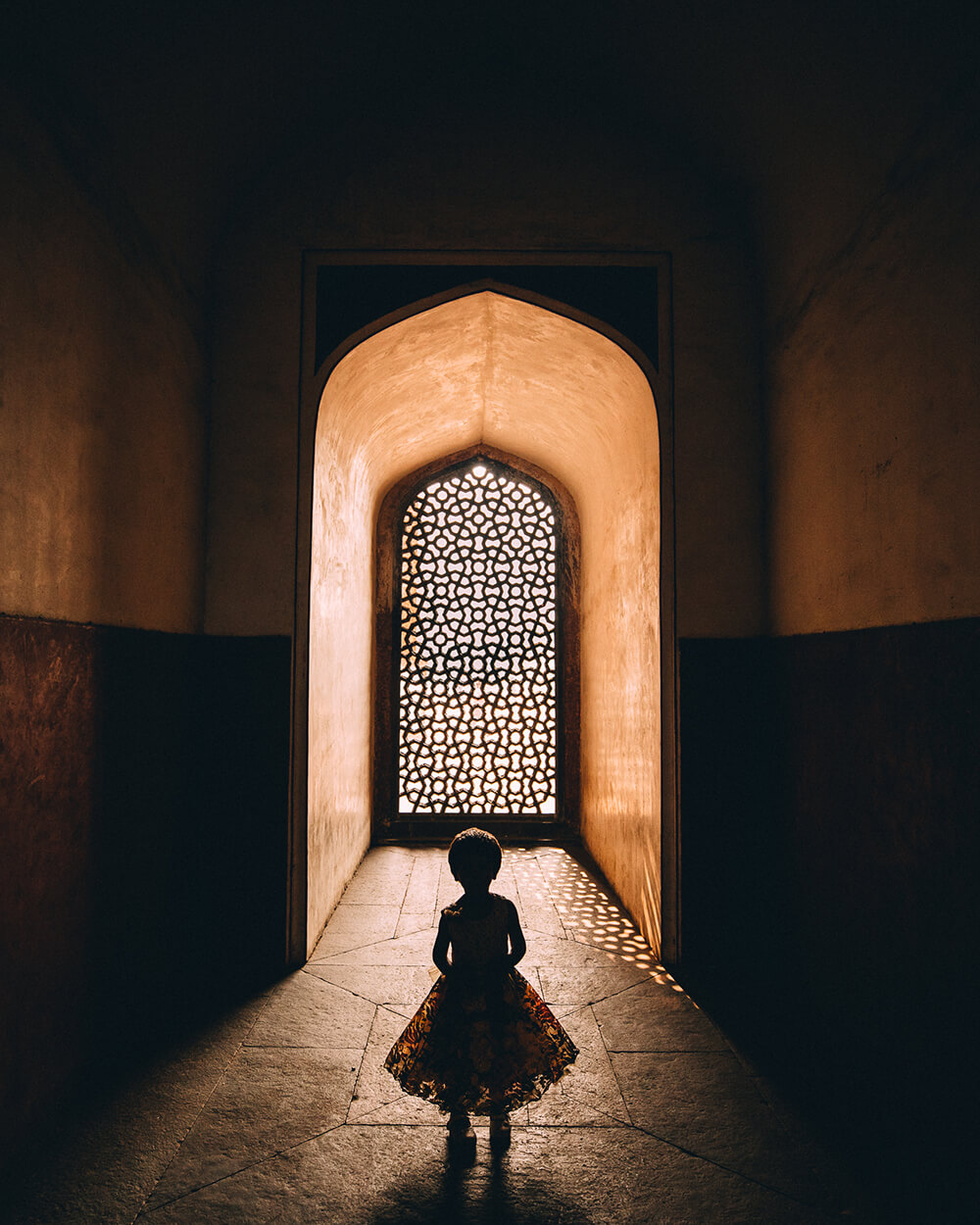
The beauty of India lies in the finest details, from the colorful food and frescoes to the complex building designs and intricate mosaic ceilings. Beauty awaits you around every corner, between the regal palaces and crowded bazaars, where smiles and gestures transcend all language barriers.
India will get inside you and turn everything upside down. Colours will never look the same. Your hands will be dirty, your hair messy, your heart full. Tastes and smells intertwine in the sweetest and most seductive of ways. It will overload you with information for every single second of every single moment, like no other place on Earth. There is nothing more overwhelming or more humbling than staring into those eyes, deeper than the ocean, marvelling at the ancient architecture while feeling the warmth and blessings coming to you from every direction.
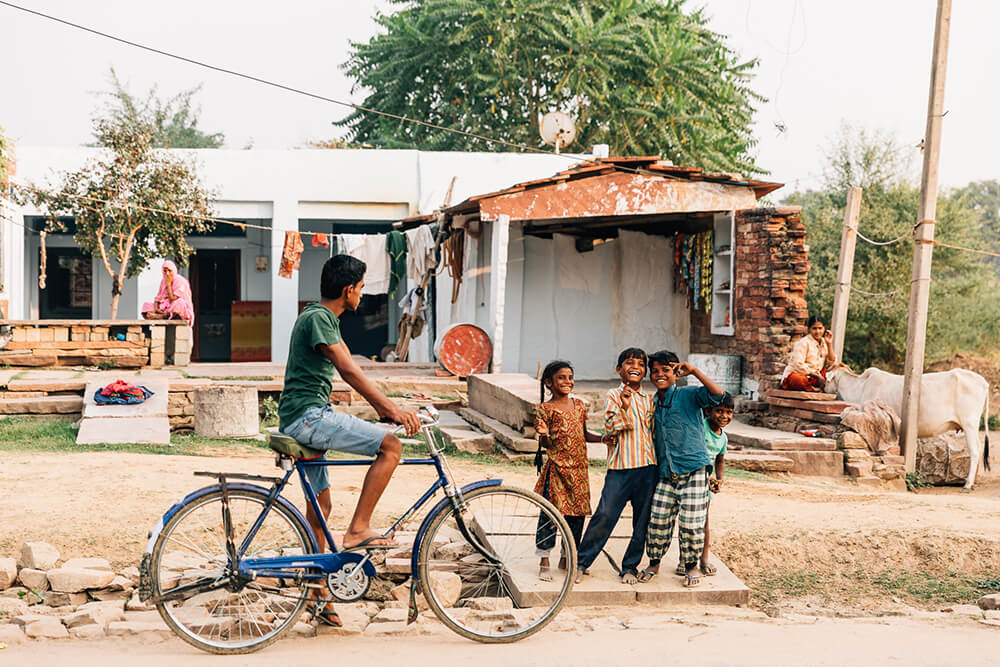
“India’s immensely storied past bleeds through its modern-day noise, making for a uniquely diverse, enchanting and incredibly photogenic country.”
Melissa Findley
You will feel the heat (both in the country and in the food). Cows will wander beside you, monkeys will cheekily entertain you. The streets are rich, smelly and noisy; a feast for all senses. You will become lost among crowds of millions, feeling like an outsider yet transported to that familiarity of “home” in a mere moment.
You’ve never seen beauty like this before. This is India. An explosion of colour and tradition, an oasis of culture and heritage that will complete you, yet keep you salivating for more.
“Months later I can still see the opulence and splendour of the ancient ruins and stunning temples, the pale dusty sunrises and sunsets.”
• Jaipur (The ‘Pink City’), Rajasthan
Known as the ‘Pink City’, due to its dominantly pink colour scheme, Jaipur is a busy town of palaces and bazaars bursting with vibrant textiles, jewellery and folk-based arts. Be sure to spend the afternoon at Amber Fort, exploring and photographing its extravagant rooms and apartments.
When: Jaipur is a joy to shoot at any time of year, though you’ll want to be there during daylight hours to capture its colourful facades. The best time to photograph Amber Fort is in late afternoon. Take a tripod and watch the sun go down as you begin to see the Pink City come alive from above.
• Karauli, Rajasthan
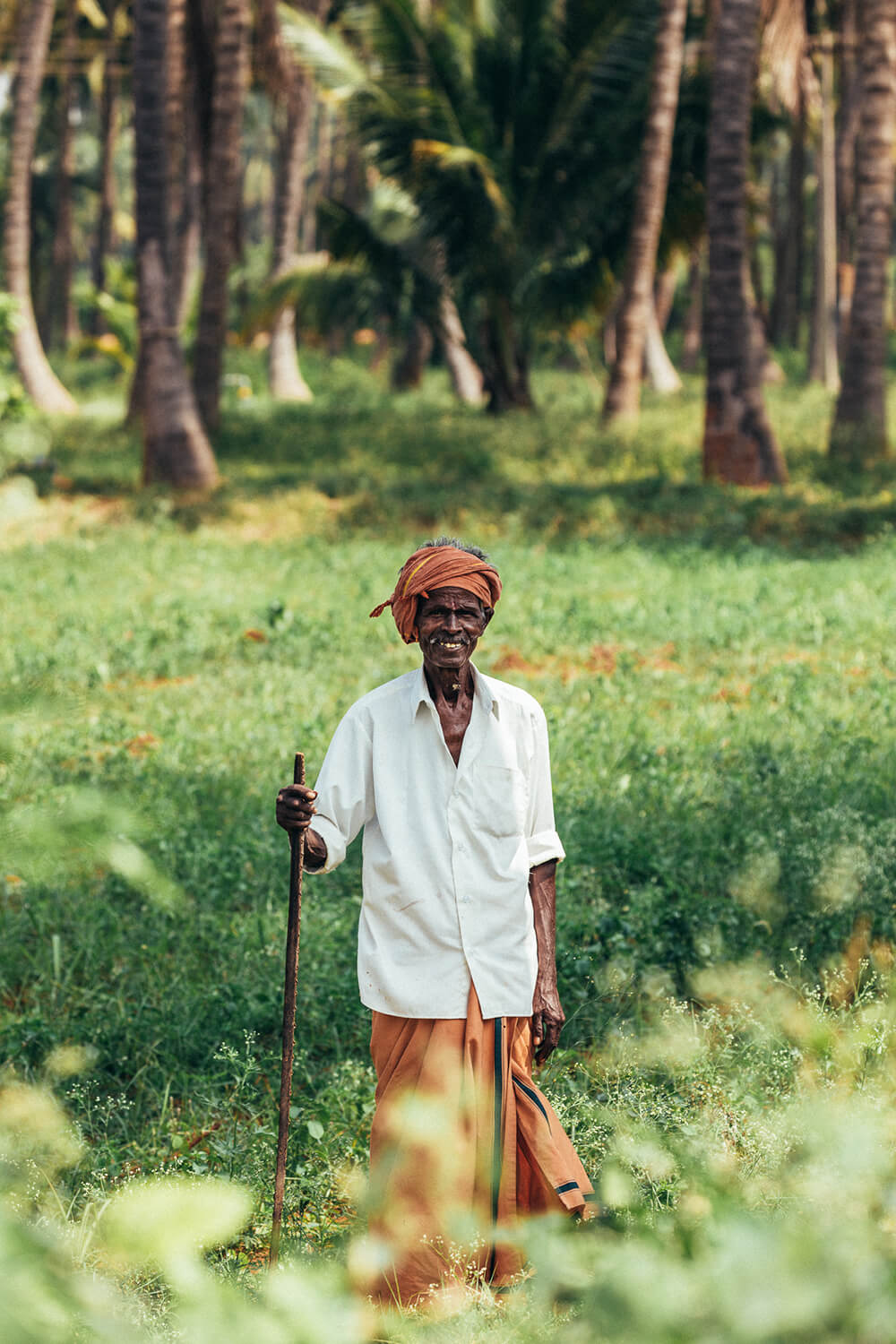
Off the beaten track is a place called Karauli, a place of rural ambience and tradition. I recommend staying in one of the old restored heritage properties and taking a walk through the old quarter. Here you’ll be able to interact with the friendly locals and learn about rural Indian life. As evening falls, follow the sea of sari’s into the most stunning marble temple to receive blessings and watch the daily ceremony. This is immediately followed by the local women singing and dancing in one large group—a truly unforgettable experience.
When: The best time to photograph Karauli is late afternoon/early evening. Prepare to capture beautiful portraits and the bustle of everyday rural life.
• Agra, Uttar Pradesh
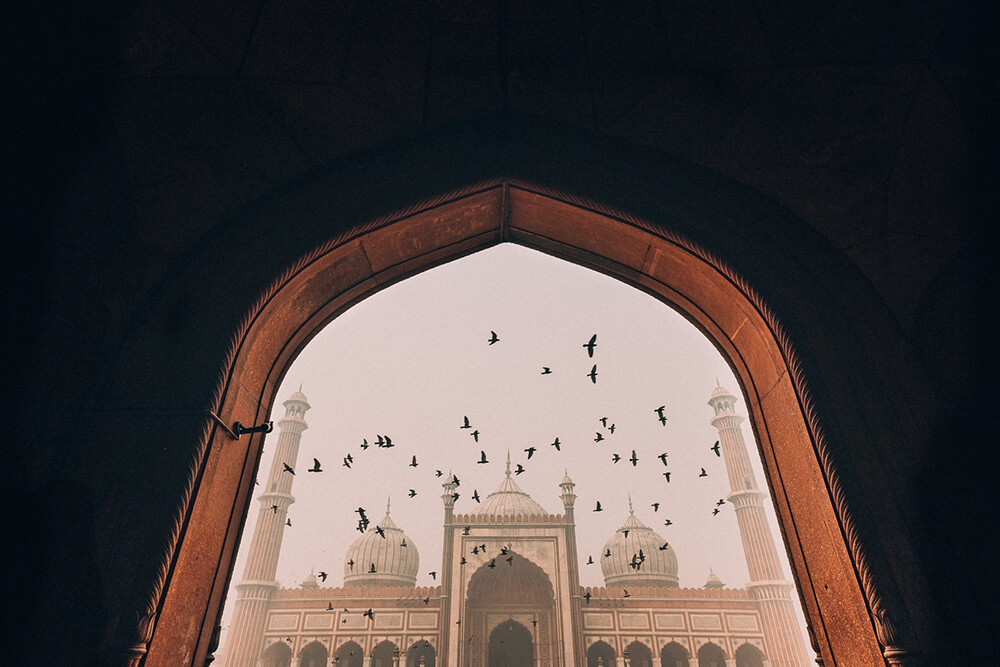
Visit the magnificent Taj Mahal and marvel at this world-famous landmark. It was completed way back in 1648 and was built as a memorial to the wife of Emperor Shan Jahan. This light of love will take your breath away.
When: Get up early and line up to be one of the first people through the gates of the Taj Mahal. Sip on a chai while you admire this stunning declaration of love, and have your camera ready as the sun begins to rise.
• Rishikesh, Uttarakhand
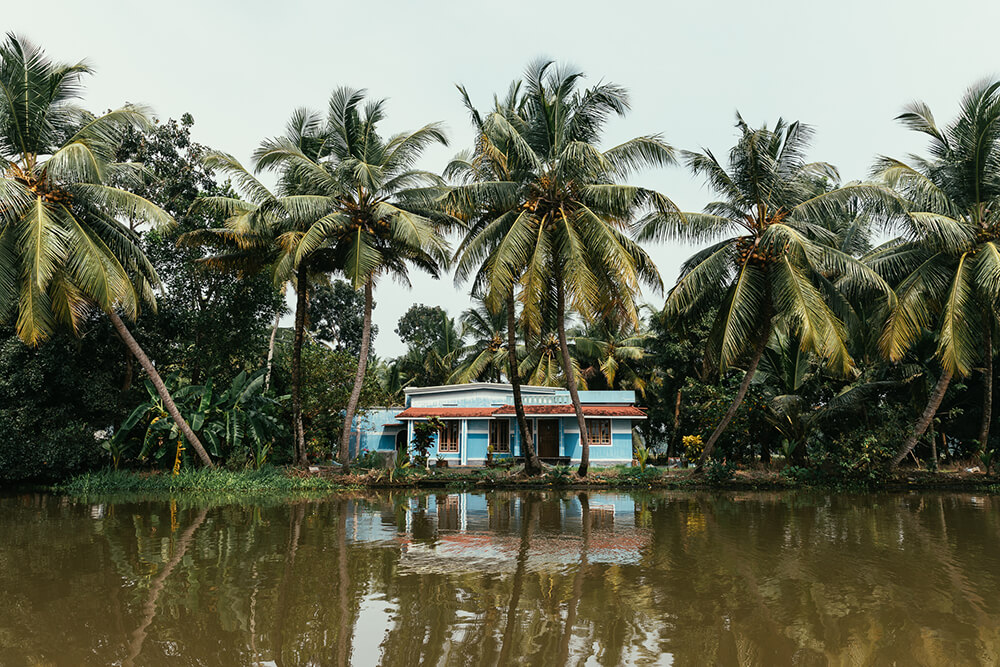
The spiritual heart of India and the yoga capital of the world, Rishikesh is a great place to relax. Drop in for a class or sit in a café and watch the world go by. Take a stroll along the holy Ganges River as the temple bells ring and chanting fills your ears. Later in the afternoon, set up your camera on the riverbank and prepare to shoot the nightly fire ceremony of the Ganga Aarti. If you’re up for it then hire a scooter and head off to the foothills of the Indian Himalayas to breathe in the freshest of air over Ganga Ma.
When: The early morning light in the Indian Himalaya foothills is spectacular. Late afternoon is the best time to photograph the Ganges River, while sunset is best for capturing Aarti.
“I can still taste the spicy curries and sweet chai teas, still smell the exotic bazaars.”
• Mamallapuram, Tamil Nadu
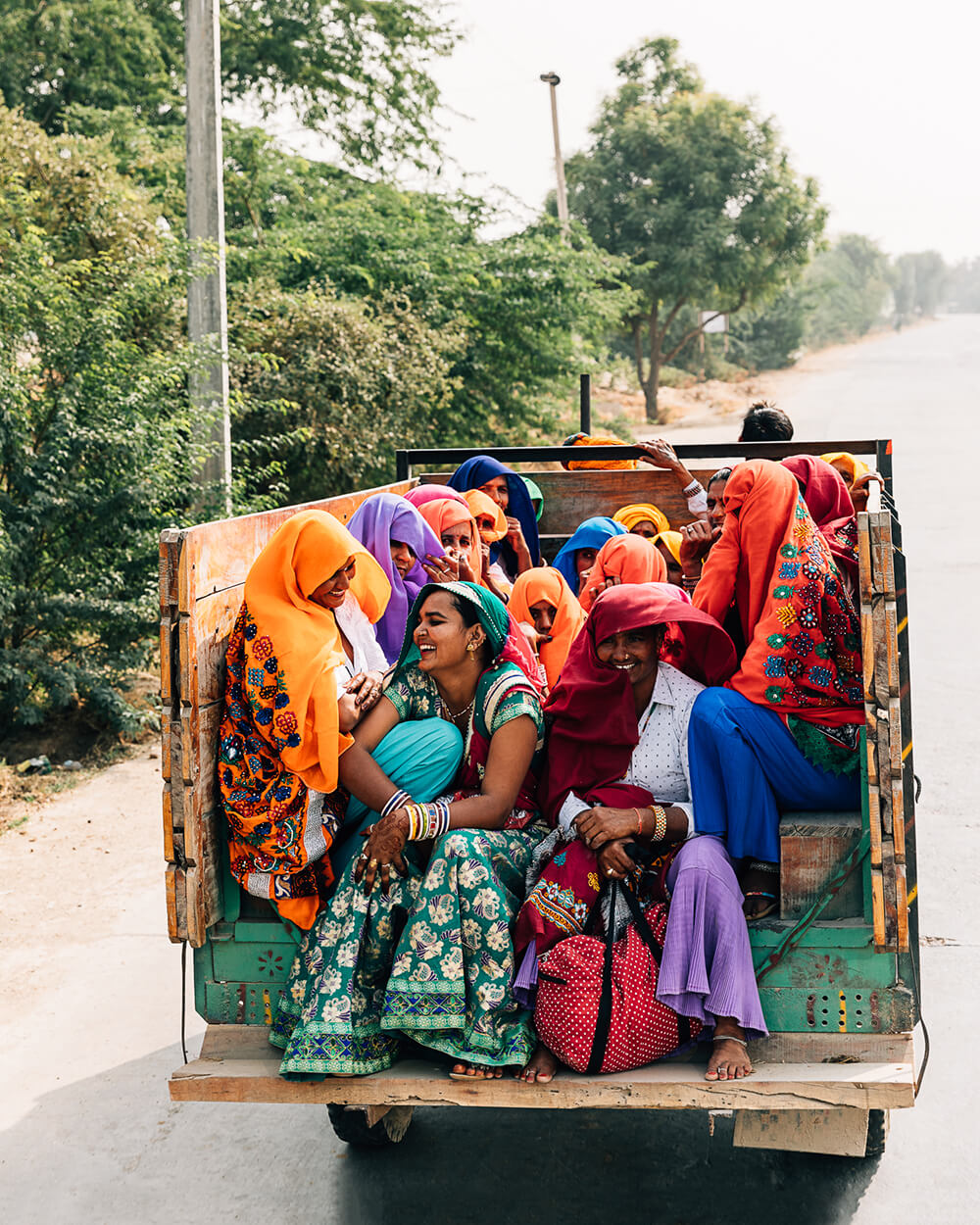
Mamallapuram is an ancient, colourful seaport town. It’s best explored by bicycle so you can visit the 7th century Shore Temple and rock carvings known as Arjuna’s Penance. Relax in the colourful seaside restaurants and capture the beautiful scenes of everyday life that unfold here.
When: Sunrise is the best time to photograph Mamallapuram, with the light pouring over the east coast of this colourful town.
• Kerala Backwaters, Kerala
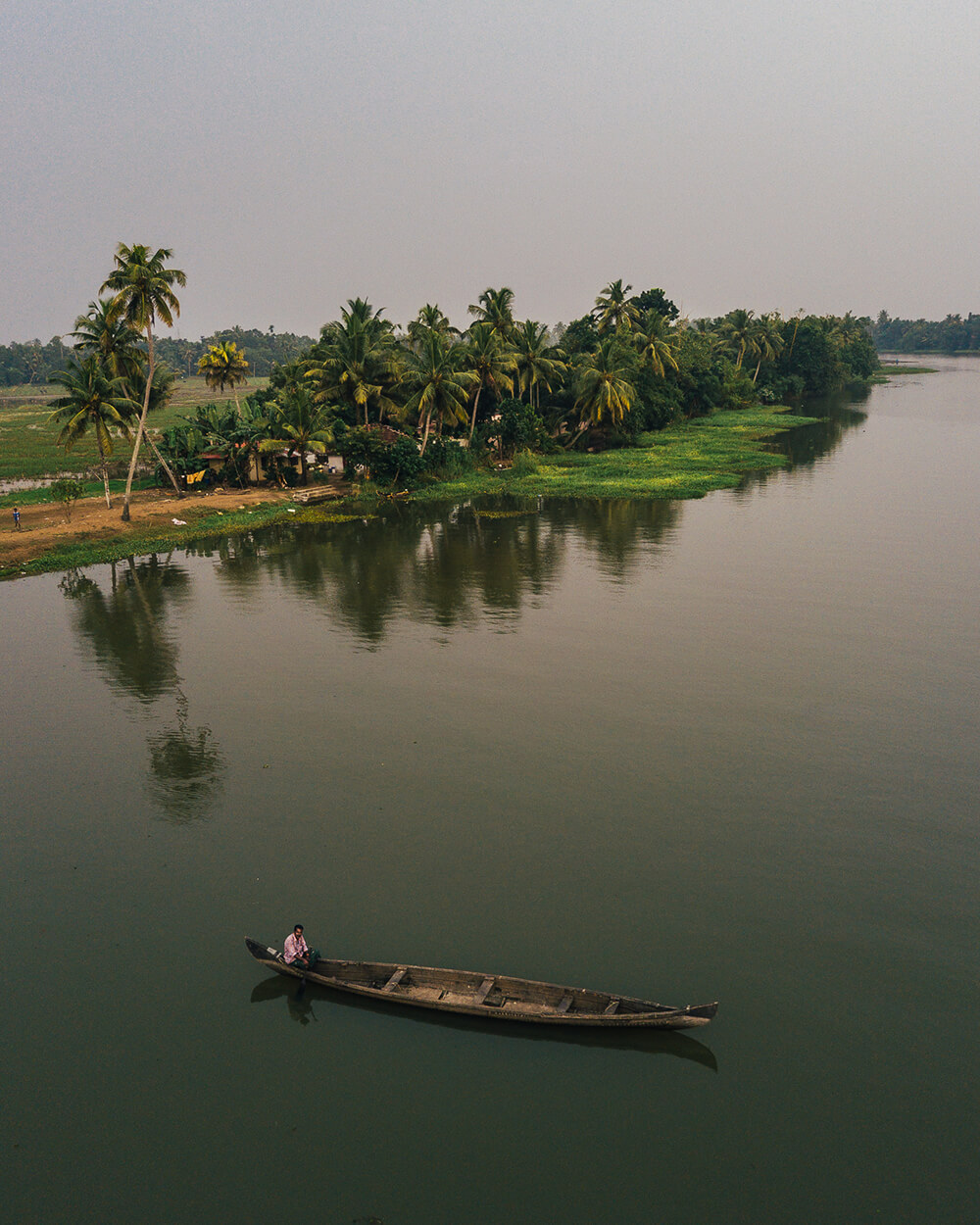
We stayed in a beautiful homestay in Kerala and enjoyed traditional home-cooked Keralan meals. In the afternoon you can float around the waterways as the sun begins to set and capture photos of the local fishermen. Keep your eyes peeled for kingfishers, otters, and more.
When: The Kerala Backwaters are at their best in the late afternoon, as the sunset casts dramatic reflections over the waters.
As is always true when travelling, you’ll want to keep your camera bag as light as possible. Here are a few essential pieces of kit I would recommend for photographing India.
The 24-70mm f/2.8L II lens is a good all-round travel lens capable of photographing pretty much anything you will encounter in India.
The 16-35mm f/2.8L III is a great wide angle lens, perfect for shooting landscapes and palace interiors alike.
The 70-200mm f/2.8L is a fantastic portrait lens and has a solid zoom range, making it ideal for shooting wildlife.
These lenses pair great with my EOS 5D Mark IV, that I usually take travelling with me.
It’s always great to have a tripod handy, especially when shooting landscapes and night photography. I recommend the Sirui Tripod, which is nice and light for travelling.
It’s important to have a sturdy and extremely comfortable camera bag to travel with as you’ll be spending a lot of time with it. There are lots of great camera bags on the market, but I use an F-Stop camera bag.
“I can still hear the morning calls and sounds of the wild jungle, the beaches and backwaters, and picture the lush landscapes that make up this incredibly stunning sub-continent.”
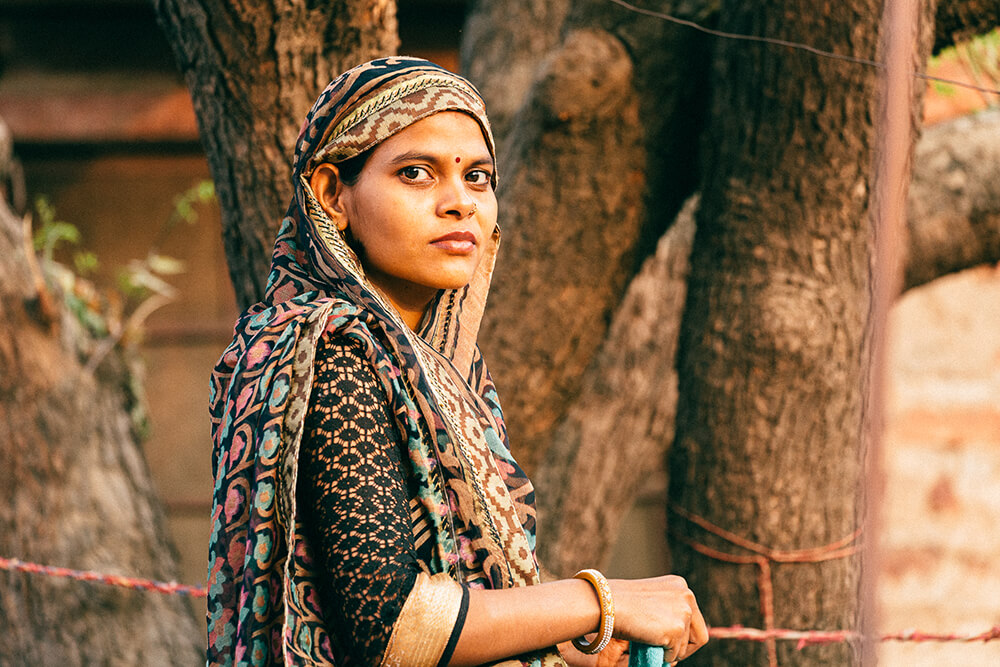
• Dress Appropriately
Remember to dress appropriately and respectfully when travelling in India. It’s especially important to wear clothing that covers your arms, as well as pants/skirts that go past the knee when entering temples (this applies to both men and women).
• Pack Clothing You Can Layer
Moisture-wicking, quick-drying clothing is a must. You will need a mixture of lightweight clothing and warm layers depending on where you a visiting and the time of year. Also pack a change of smart clothes to wear when dining out in larger cities.
• Eat, Eat, Eat
Food plays a major role in everyday life in India. You can eat extremely well without spending much money. Indian cuisine caters very well to vegetarians and vegans, with almost all restaurants offering excellent vegetarian and/or vegan options.
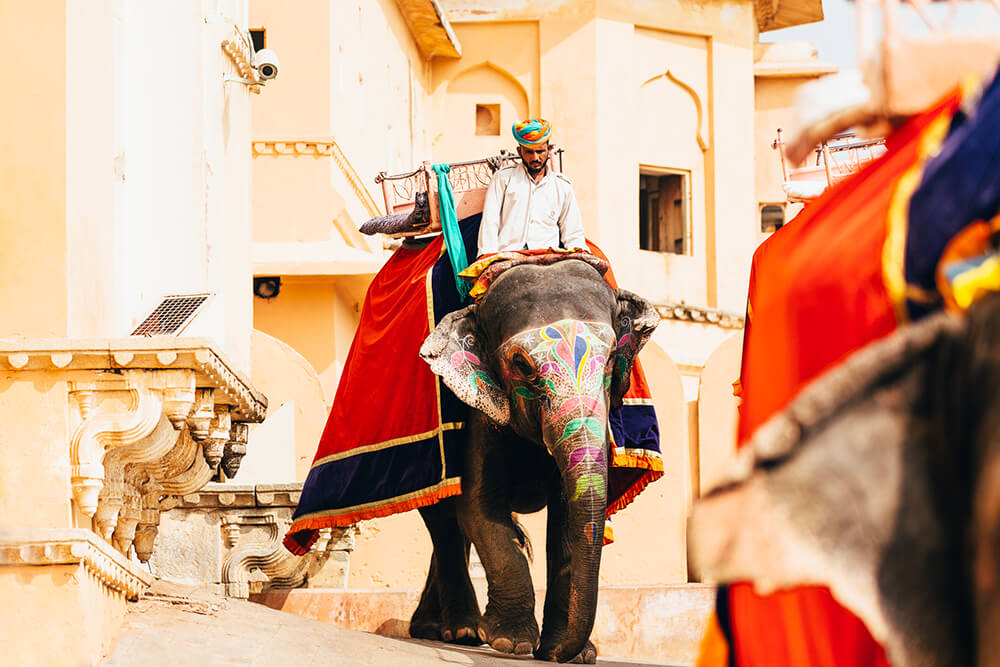
• Animals are not Entertainment
During my visit to the ever popular tourist attraction Amber Fort in Jaipur, I witnessed many tourists riding elephants in place of walking the easy (and scenic) 20 minutes to the Fort gates. So far, the time to ride the elephants up to the Amber Fort has been reduced to 8–11am, but imagine if we could stop it altogether.
One of the things I admire about Intrepid Travel is their ban on elephant tourism and their animal welfare policy. A few days ago, whilst on jungle safari, I saw a herd of elephants (with a baby) at about 7:30pm. We observed them silently in the dark, listening to the sounds of the jungle alive all around us and it was absolutely exhilarating. This is how it should be. Awareness is key in moving forward to being conscious travellers. For every traveller educated, and every elephant ride declined, the odds improve for these majestic creatures.
• Adjust Your Expectations
Be aware that accommodation in India can be relatively basic, especially when staying in local guesthouses and homestays. Some properties may have shared bathroom facilities with cold water only, and it’s common for the power to be cut off during certain times of the day. It’s best to bring your own travel pillow, travel towel and slip to sleep in (this is also more hygienic and a good idea if you plan to take overnight trains).
India is such a special place, a land of contrasts—and definitely not the India you see on all the postcards. There is no other country on the planet that will find its way into your heart quite like India.
Follow Melissa Findley on Instagram or check out her website to see more of her travel photos from India and beyond.

See 10 of the most celebrated images of 2021 captured by the Canon Community.

To celebrate the end of the year, We’ve chosen 10 of our favourite images shared by the Canon Collective Facebook Community. The quality of imagery and discussions shared in the group continues to impress and inspire us everyday!

This year we've seen some incredible work come through from our community. Here are 15 of the most celebrated images of 2020.